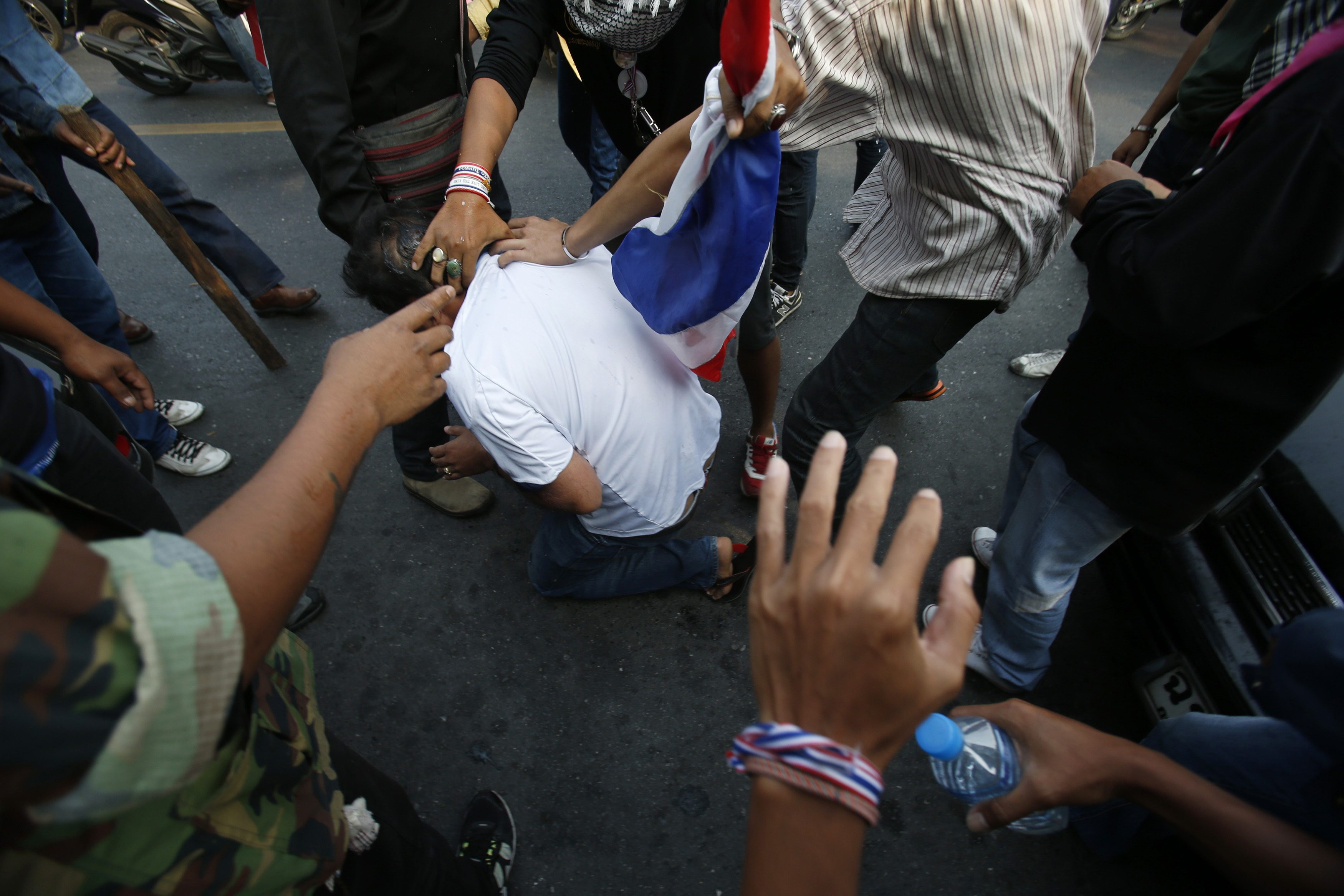BANGKOK – Thai anti-government protesters surrounded polling stations Sunday as advance voting for controversial elections got under way, authorities said, raising uncertainty over whether the ballot will ultimately be held.
Over two million people are registered for the advance vote ahead of the February 2 election, which was called by Prime Minister Yingluck Shinawatra in an attempt to defuse rising political tensions after weeks of mass anti-government protests.
Demonstrators, who have staged a near two-week so-called "shutdown" of Bangkok in an effort to derail the vote, have rejected the election and vowed to congregate around polling stations.
Advance voting is being held for those who are unable to take part in the February 2 election and is routine, although this time it is being seen as a litmus test for the possibility of holding the vote next Sunday without violence.
The country's Election Commission has said that individual polling stations could decide to suspend advance voting if there is a blockade or violence.
Protesters insist they will not obstruct voters, although analysts have questioned whether their actions are tantamount to voter intimidation.
There were no immediate reports of violence on Sunday but Thai television said there had been verbal clashes between voters and protesters at some polling stations.
"There are around 2,500 protesters (in total) in front of at least 13-14 polling stations," in the Thai capital, a National Police officer, who did not want to be named, told AFP.
Police would keep a low profile to avoid raising tensions, he said, adding they would go onto the streets in the event of any "unrest".
Protesters also reportedly blocked polling stations in southern Thailand – where the anti-government movement draws widespread support.
Demonstrators want to topple the government and install an unelected "people's council" to implement loosely-defined reforms that they hope will rid Thailand of the influence of ousted former leader Thaksin Shinawatra – Yingluck's older brother.
They do not want the February 2 polls to go ahead, calling for reform before elections.
An AFP reporter at one Bangkok polling station said there was no sign of voters early Sunday as dozens of protesters, many blowing whistles, surrounded the building's entrance which was padlocked as voting opened.
"I'm here to prevent people from voting," said 64-year-old Amornchock, giving one name.
"I'm not against democracy, I'm not against elections, but they have to be fair."
There is mounting uncertainty over whether elections will take place on schedule, after the country's Constitutional Court on Friday ruled that the February polls could legally be delayed because of the crisis.
Yingluck, who has so far refused to resign or delay the poll, is set to meet Election Commission officials on Tuesday.
Nine people have been killed and hundreds injured during nearly three months of protests that have sparked international concern and investor fears over the country's economy.
Sunai Phasuk, Thailand researcher for Human Rights Watch, said it was unclear how the protesters would enact their plan to "persuade" people not to vote without blocking them from doing so.
"What if they refuse to comply? This is a slippery slope and could easily turn into intimidation of voters," Sunai said.
Thailand's political system has been left deeply fractured by years of political turmoil that began shortly before Thaksin was deposed in a military coup in 2006.
The crisis roughly pits Thaksin's supporters from rural and urbanised communities in the north and northeast against his foes within the country's elite, the Bangkok middle classes and parts of the south.
The billionaire tycoon-turned-politician – who lives abroad to avoid a jail term for corruption that he says was politically motivated – has won every election since 2001 either directly or more recently through allied parties.
But his opponents accuse him of corruption, "vote buying" and pushing through expensive populist policies to strengthen his electoral position.
The main opposition Democrat Party, which has not won an elected majority in some two decades, is boycotting the latest polls.






















































